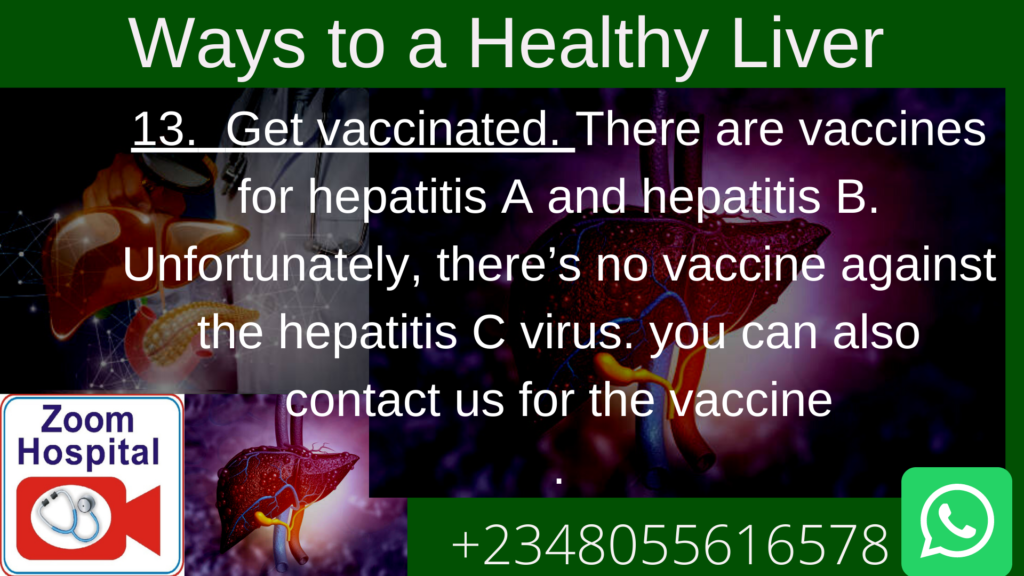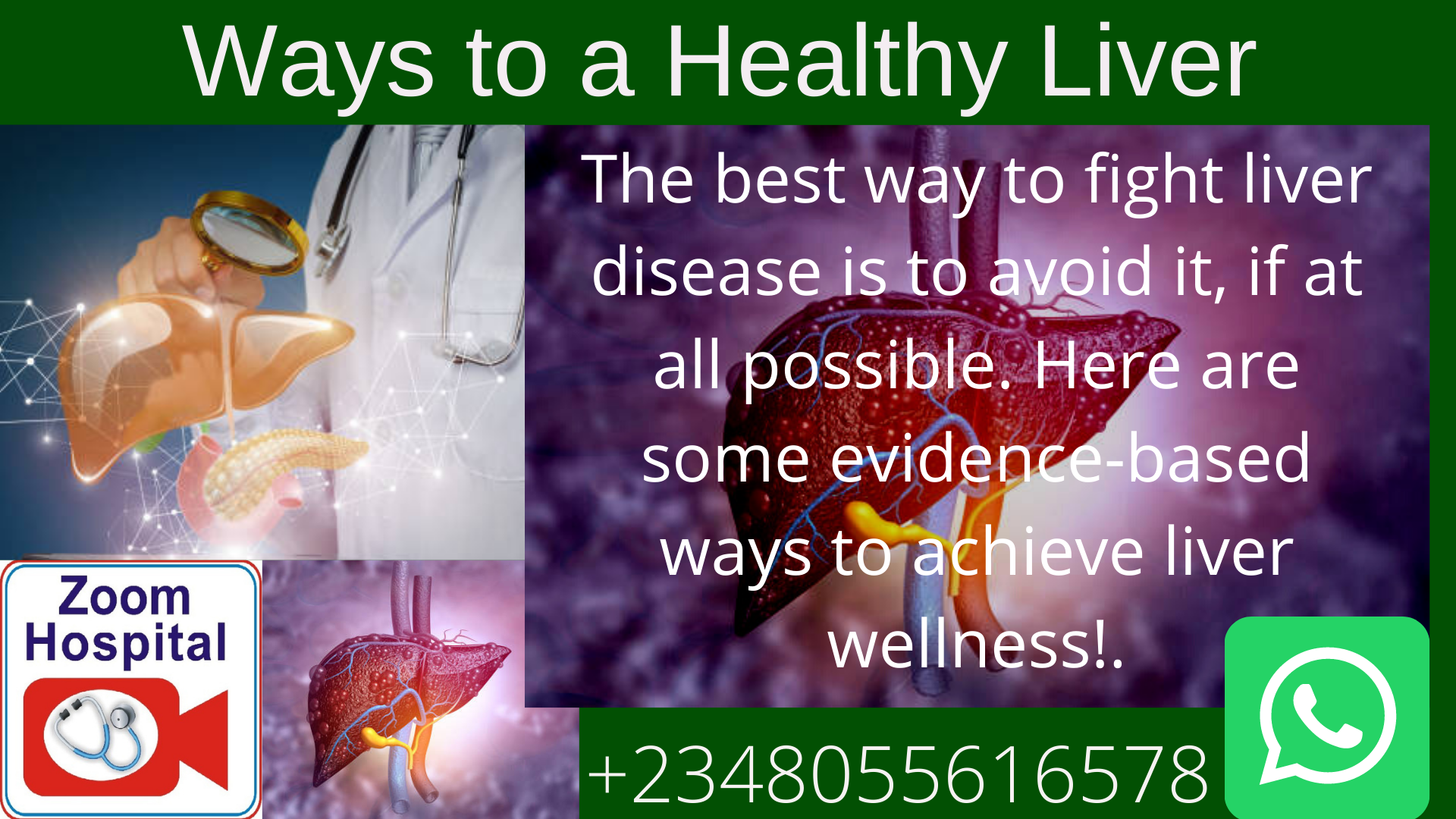
The best way to fight liver disease is to avoid it, as much as possible.
- Keep a healthy weight. If you’re obese or even somewhat overweight, you’re in danger of having a fatty liver that can lead to non-alcoholic fatty liver disease (NAFLD), one of the fastest growing forms of liver disease. Weight loss can play an important part in helping to reduce liver fat.
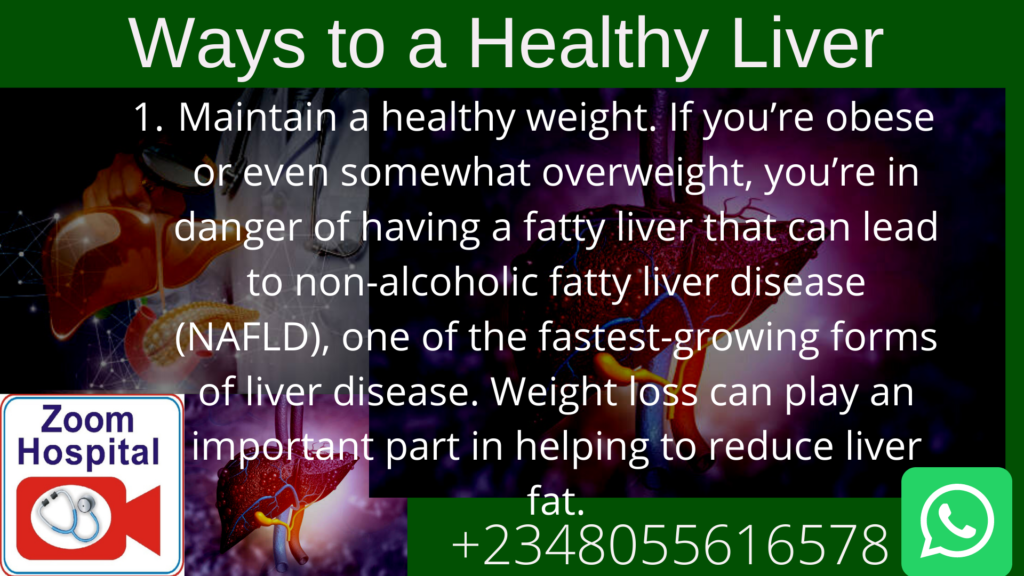
- Take balanced diet. Avoid high calorie-meals, saturated fat, refined carbohydrates (such as white bread, white rice and regular pasta) and sugars. Don’t eat raw or under cooked shellfish. For a well-adjusted diet, eat roughage, which you can obtain from fresh fruits, vegetables, whole grain breads, rice and cereals. Also eat meat (but limit the amount of red meat), dairy (low-fat milk and small amounts of cheese) and fats (the “good” fats that are monounsaturated and polyunsaturated such as vegetable oils, nuts, seeds, and fish). Hydration is essential, so drink a lot of water.
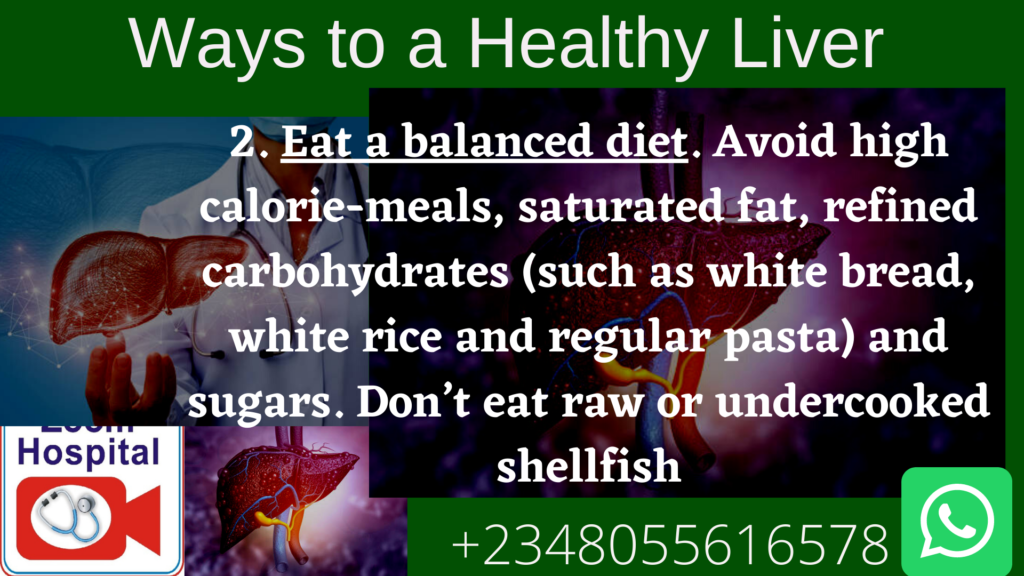
- Regular exercise. When you exercise consistently, it helps to burn triglycerides for fuel and can also reduce liver fat.
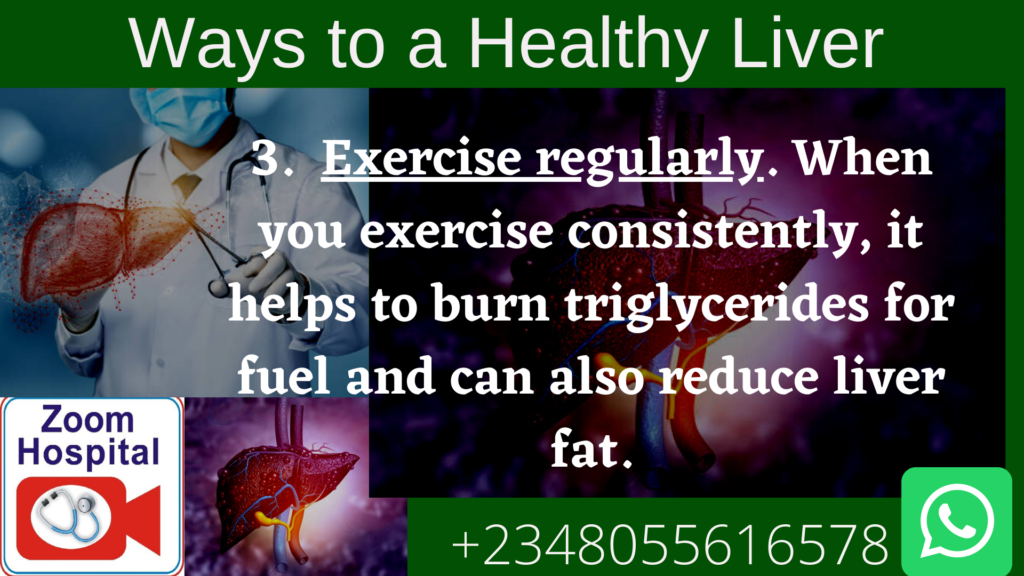
- Avoid toxic chemicals. Toxins can injure liver cells. Limit direct contact with toxins from cleaning and aerosol products, insecticides, chemicals, and additives. When you do use aerosols, make sure the room is ventilated, and wear a mask. Don’t smoke.
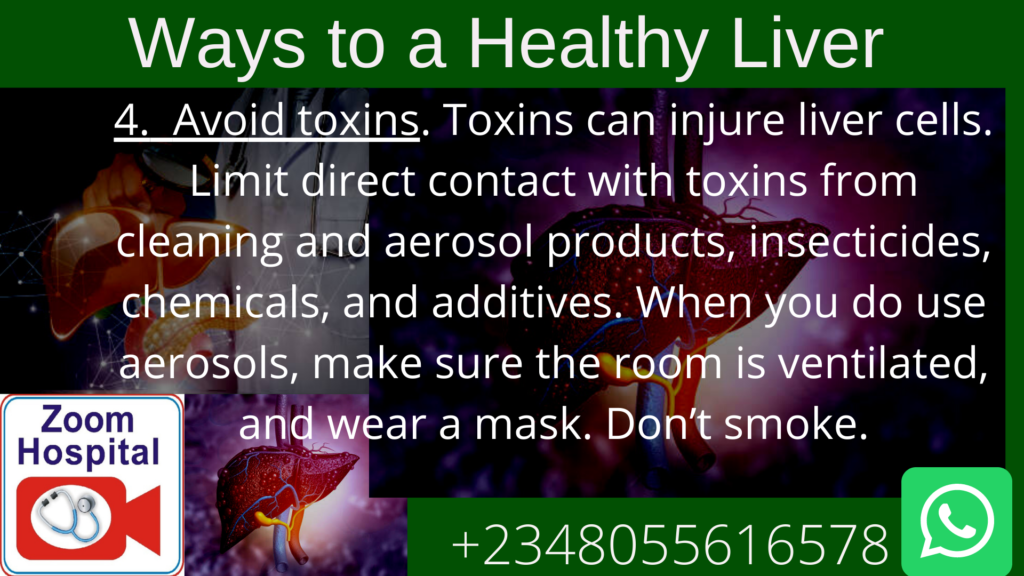
- Control your alcohol consumption. Alcoholic beverages can create many health problems. They can damage or destroy liver cells and scar your liver. Talk to your doctor about what amount of alcohol is right for you. You may be advised to drink alcohol only in moderation or to quit completely.
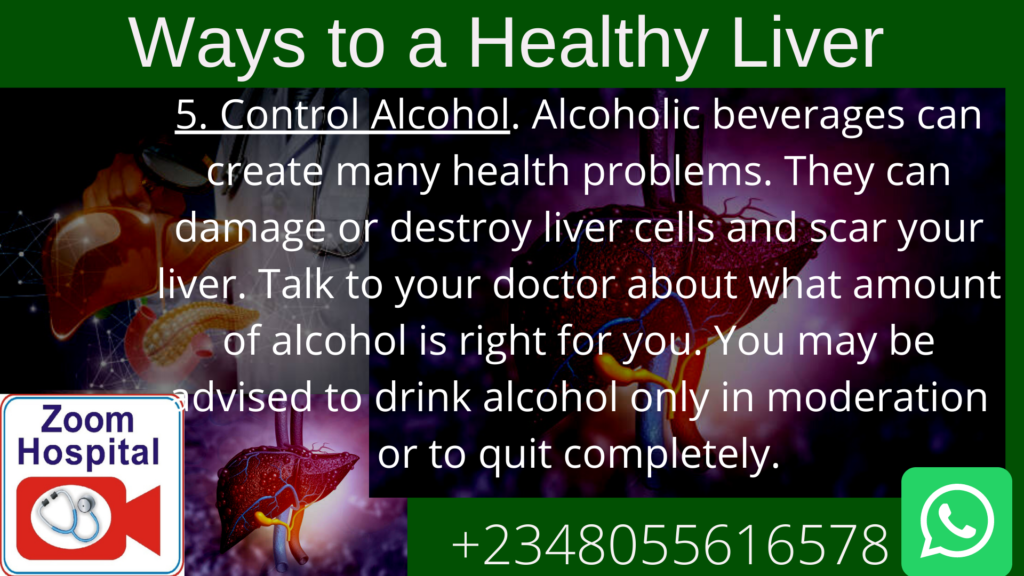
- Avoid illicit drugs. Illicit drugs include marijuana/hashish, cocaine (including crack), heroin, hallucinogens, inhalants, or prescription-type psychotherapeutics (pain relievers, tranquilizers, stimulants, and sedatives) used non-medically.
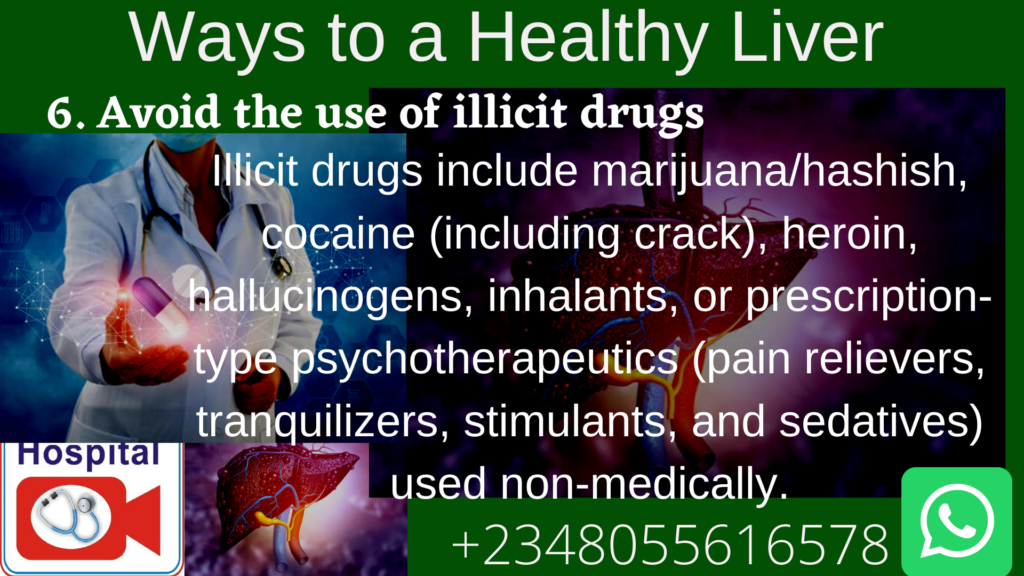
- Avoid contaminated sharps. Of course, dirty needles aren’t only associated with intravenous drug use. You ought to follow up with a medical practitioner and seek testing following any type of skin penetration involving sharp instruments or needles. Unsafe injection practices, though rare, may occur in a hospital setting, and would need immediate follow-up. Also, use only clean needles for tattoos and body piercings.
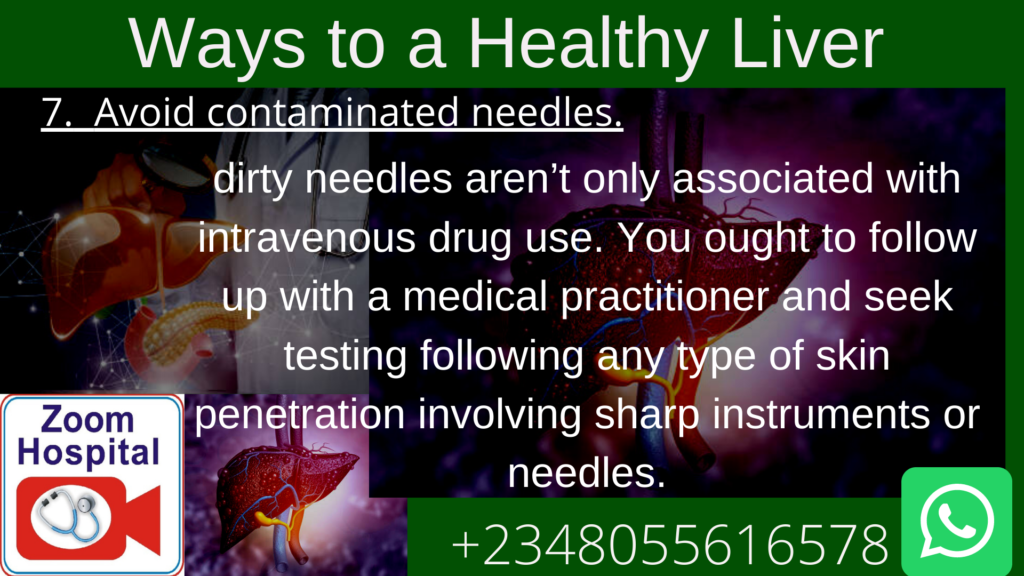
- Seek medical care if you’re exposed to another person’s blood. If for any reason you come into contact with someone else’s blood, immediately follow up with your doctor. If you’re very concerned, go to your nearest hospital’s emergency room.
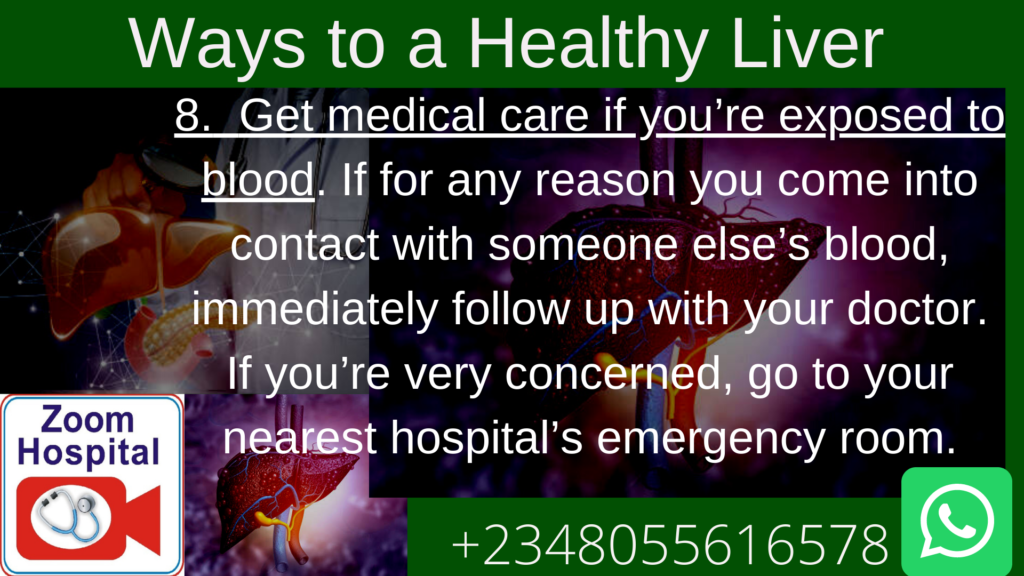
- Do not share personal hygiene items.
For example, razors, toothbrushes and nail clippers can carry microscopic levels of blood or other body fluids that may be contaminated.
- Protect yourself during sex. Unprotected sex or sex with multiple partners increases your risk of hepatitis B and hepatitis C.
- Wash your hands regularly. Use soap and warm water immediately after using the bathroom, when you have changed a diaper, and before preparing or eating food.
- Ensure correct usage of all drugs. When medicines are taken incorrectly by taking too much, the wrong type or by mixing medicines, your liver can be harmed. Never mix alcohol with other drugs and medications even if they’re not taken at the same time. Tell your doctor about any over-the-counter medicines, supplements, and natural or herbal remedies that you use.
- Get vaccinated against hepatitis A and B. There are vaccines for hepatitis A and hepatitis B. Unfortunately, there’s no vaccine against the hepatitis C virus.
